Menendez says Obama ousted him for opposing Iran nuclear deal
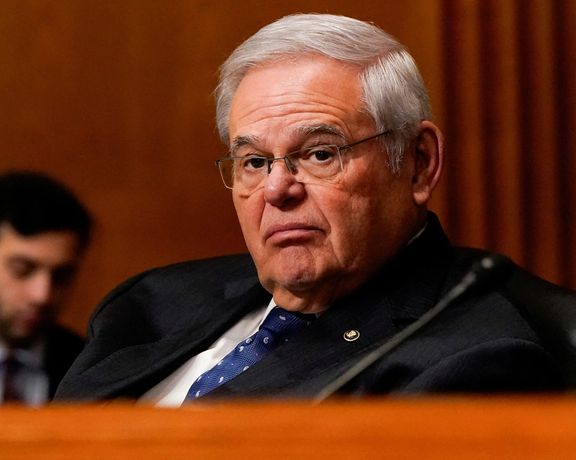
Former US senator Bob Menendez on Friday accused former president Barack Obama of orchestrating his political downfall after he opposed the 2015 Iran nuclear deal.

Former US senator Bob Menendez on Friday accused former president Barack Obama of orchestrating his political downfall after he opposed the 2015 Iran nuclear deal.
“When, as the Chairman of the SFRC (Senate Foreign Relations Committee), I didn't go along with Obama's Iran deal, I was indicted, and the next day after being stripped of my position, Obama announced the Iran deal,” Menendez wrote on X.
“Obama told me that he could not have the Democratic Chairman of the SFRC be against him,” he added.
The 2015 Joint Comprehensive Plan of Action (JCPOA) was a multilateral agreement between Iran and world powers that aimed to limit Iran’s nuclear program in exchange for sanctions relief. Menendez, a Democrat, was one of the most prominent critics of the deal within his party at the time.
“By having me removed as the Chair of the Senate Foreign Relations Committee, Obama removed my major opposition to his Iran deal. It was a bad deal for the U.S. and for our ally, Israel,” Menendez said.
Menendez resigned from the Senate last year after being convicted on 16 federal charges, including bribery, obstruction of justice, and acting as a foreign agent for Egypt. He was sentenced in January 2025 to 11 years in prison. He is supposed to report to federal prison on June 17.
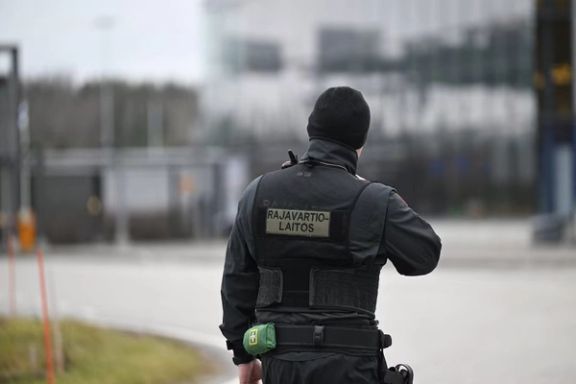
Iran is conducting increasingly hostile intelligence operations targeting Finland, the Finnish Security and Intelligence Service (Supo) told public broadcaster Yle in comments published Friday.
For the first time, Supo officially named Iran as one of the states actively spying on Finland, alongside Russia and China. The agency did not specify what kind of information Iran seeks but cited a broader rise in espionage threats.
Supo noted that Iran's tactics could include recruiting organized crime groups to carry out operations in Finland—an approach it described as part of Tehran’s use of proxy actors to obscure its involvement. The agency did not provide details on what kinds of acts might be involved but said similar Iranian-linked plots have been uncovered elsewhere in Europe.
Iranian surveillance targets exiles abroad
The agency also warned of surveillance targeting members of exiled opposition groups and other individuals viewed by Tehran as threats, often using personal data collection and pressure on family members abroad.
Supo said Iran’s actions reflect deteriorating relations with Western countries and highlighted that the threat is growing in other Nordic countries as well.
Sweden previously flagged similar threats from Tehran
The warning from Supo comes amid similar concerns raised by Sweden earlier this year. In its March annual threat assessment, the Swedish Security Police (SAPO) said Iran had escalated its intelligence activities and was increasingly using criminal networks within Sweden to suppress opposition and target perceived threats — including Israeli-linked groups. SAPO also reported efforts by Tehran to acquire sensitive dual-use technologies to bypass international sanctions and support weapons programs.
At the time, SAPO accused Iran of using a Shiite mosque in Stockholm for surveillance operations and warned that the security situation could deteriorate in unpredictable ways. That assessment followed a major diplomatic crisis last year, which ended in a prisoner swap between Stockholm and Tehran.
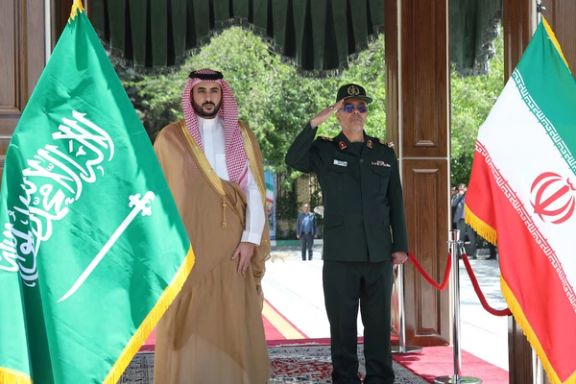
Saudi Arabia’s defense minister told senior Iranian officials in April that they should take President Donald Trump’s offer to negotiate a nuclear deal seriously or risk a potential Israeli military strike, four sources familiar with the meeting told Reuters.
Prince Khalid bin Salman delivered the message from King Salman during a closed-door meeting in Tehran on April 17, according to two sources close to regional governments and two Iranian officials. Iranian President Masoud Pezeshkian, armed forces chief Mohammad Bagheri, and Foreign Minister Abbas Araghchi were present at the talks, the sources said.
The prince, who previously served as Saudi ambassador to Washington, conveyed that Trump’s team had limited patience for prolonged negotiations and that a failure to reach an agreement could raise the risk of an Israeli strike, according to the sources.
The same sources said Prince Khalid indicated it would be preferable to reach a deal with the United States rather than face the consequences of escalating tensions.
Iran says it's open to deal but not at any cost
Iranian officials responded that Tehran was interested in a deal to ease economic pressure, but raised concerns about the Trump administration’s “unpredictable” negotiating style.
One Iranian source said Pezeshkian conveyed that while Tehran was eager to reach a deal, it was not prepared to give up its enrichment program solely to satisfy US demands.
The message from Riyadh came as talks between Washington and Tehran, mediated by Oman, enter a critical phase. No date has been announced for a sixth round, though Trump said this week that “we are very close to a solution,” adding that Iran appears willing to engage seriously. “If we can make a deal, I’d save a lot of lives,” he said.
Enrichment, inspections, and Iranian goals under scrutiny
According to CNN, negotiators are exploring a framework that may include a multinational consortium to produce nuclear fuel for Iran’s civilian program and possible US investment. Iran has denied a separate report that it was considering a temporary pause in enrichment in return for sanctions relief and recognition of its right to civilian enrichment.
Foreign Ministry spokesman Esmaeil Baghaei said on Wednesday, “The continuation of enrichment in Iran is a non-negotiable principle.”
Iran says its program is peaceful, while US and Israeli officials continue to express concern that Tehran is approaching nuclear weapons capability. A recent report by Austria’s intelligence agency described Iran’s weapons program as “far advanced,” in contrast with the US public assessment that Iran has not yet decided to build a bomb.
Tehran has also indicated it may consider allowing US nuclear inspectors under a future deal, a shift from its current restrictions, while IAEA chief Rafael Grossi said any agreement would require “very robust inspection.”
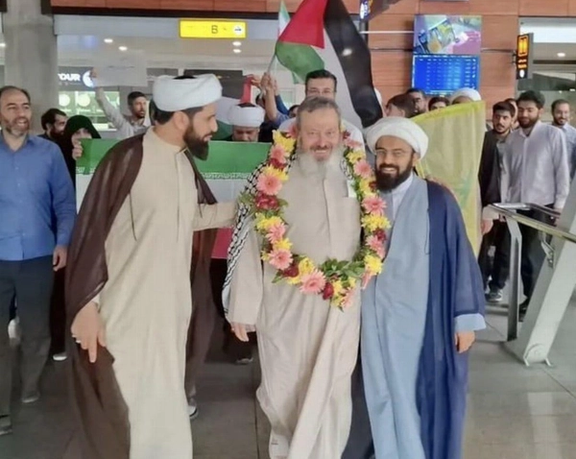
Iranian Foreign Minister Abbas Araghchi confirmed on Thursday that cleric Gholamreza Ghasemian, detained earlier this week in Saudi Arabia for criticising Riyadh, had been released following diplomatic intervention.
Ghasemian, a senior hardline religious figure, had posted a video from Medina during the Hajj pilgrimage accusing Saudi authorities of transforming Islam’s holiest cities into commercialized entertainment hubs.
“We continue our brotherly relations with Saudi Arabia and will not allow any disruption to affect them,” Araghchi said in a statement carried by IRNA.
He added that Tehran was in close coordination with Hajj officials to ensure the uninterrupted participation of Iranian pilgrims.
In the footage, recorded shortly before his arrest, Ghasemian said Mecca and Medina had become substitutes for casinos, brothels, and obscene concerts, alleging a Saudi-led erosion of Islamic values by the country which safeguards Islam's holiest sites.
Saudi authorities detained Ghasemian in Medina, but Iranian officials say he was freed without charges and returned to Iran via Dubai early Thursday.
Majid Rezapanah, head of consular affairs at Iran’s foreign ministry, said Saudi officials granted consular access twice during his detention.
“The matter was resolved through high-level engagement and reflects the seriousness of both sides in preserving recent diplomatic gains,” Rezapanah told state media.
Ghasemian, 52, is no stranger to controversy. He was previously linked by filmmaker Javad Mogouei to a fiery speech delivered ahead of the 2016 mob attack on Saudi diplomatic missions in Tehran and Mashhad.
The assault, triggered by the Saudi execution of prominent Shia cleric Nimr al-Nimr, led to Riyadh severing diplomatic ties with Iran until their resumption in 2023.
Since then, the two regional rivals have resumed direct flights, reopened embassies, and exchanged senior visits—including an April trip to Tehran by Saudi Defense Minister Prince Khalid bin Salman.
Iranian officials have sought to downplay the Ghasemian episode, emphasizing the broader stakes. “No one will approve of bad or offensive speech,” Iran’s ambassador to Riyadh, Alireza Enayati, posted in Arabic, aiming to reassure his Saudi hosts.
Ghasemian, now back on Iranian soil, thanked consular staff for securing his release in a post on X.
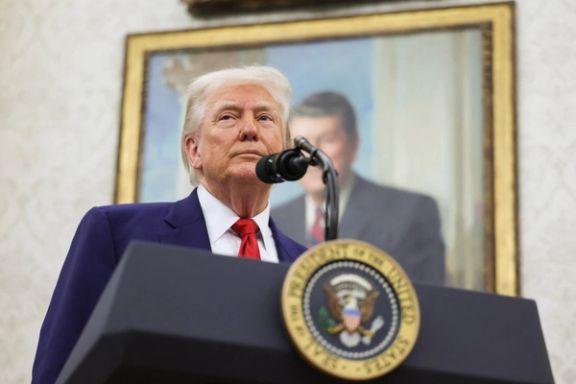
US President Donald Trump said on Thursday that a new nuclear agreement with Iran was close despite persistent public disagreement over enrichment, though media reports citing sources close to the talks suggested various novel ways out of the impasse.
“We are very close to a solution,” Trump said on Wednesday. “If we can make a deal, I’d save a lot of lives," adding that Iran appears willing to engage seriously and that they had constructive discussions.
The talks mediated by Oman have entered crunch time with no date and location yet announced for a sixth round.
The United States and Iran are nearing a broad agreement on the future of Tehran’s nuclear program, CNN reported on Wednesday, with talks progressing in recent weeks toward a framework that could be finalized at a future meeting.
Washington and Tehran are considering a potential multinational consortium—possibly including regional partners and the International Atomic Energy Agency—to produce nuclear fuel for Iran’s civilian reactors and may include US investment, CNN reported citing source familiar with the talks.
A White House official, speaking to Fox News, said nothing had yet been agreed on Iran’s nuclear energy program.
Iran denies enrichment freeze proposal
Tehran says its nuclear program is purely peaceful but Western countries and its Mideast adversary Israel doubt its intentions.
Iran says it is keen to reach a nuclear deal but has maintained a right to domestic enrichment despite US demands to shutter it.
Iran on Thursday denied a Reuters report citing two Iranian officials saying they were mulling a proposal to halt uranium enrichment for a year and ship part of its highly enriched stockpile abroad or convert it into fuel plates for civilian nuclear purposes.
“The continuation of enrichment in Iran is a non-negotiable principle,” Foreign Ministry spokesman Esmaeil Baghaei said Wednesday.
The suggestion mulled by Iranian officials, according to the sources cited by Reuters, envisions the disbursement of funds frozen by Washington and the recognition of Tehran's right to enrich uranium for civilian use in return for the pause.
Meant as a political deal that could pave the way for a broader accord, the proposal not yet been floated in the talks, Reuters cited the Iranian sources as saying.
Austria on alleged Iranian nuclear arms ambitions
Austria’s domestic intelligence agency released a report this week saying Iran's program to develop nuclear arms is far advanced, in wording which appeared to outstrip that of its Western counterparts.
"Nuclear weapons are intended to make the regime untouchable and to expand and consolidate its dominance in the Near and Middle East and beyond," the Austrian Federal Office for the Protection of the Constitution said in its annual report.
"The Iranian program for the development of nuclear weapons is far advanced."
The United States has publicly assessed that Iran has not yet decided to build a nuclear weapon but maintains that its nuclear program is aimed at becoming a nuclear threshold state to deter foreign attack.
The Austrian report further alleged that Tehran aims to develop long-range ballistic missiles capable of delivering nuclear warheads, without citing any evidence.
"An arsenal of ballistic missiles is ready to carry nuclear warheads over long distances."
Iran open to US inspectors
In an apparent policy shift, the head of Iran’s Atomic Energy Organization said Tehran may reconsider its longstanding ban on US nuclear inspectors if current talks with Washington lead to a successful agreement.
Mohammad Eslami said American inspectors affiliated with the International Atomic Energy Agency (IAEA) could be allowed into Iranian sites under a future deal, despite current restrictions on personnel from adversary states.
“It is normal that inspectors from hostile countries are not allowed, but if a nuclear deal is reached, we might allow American inspectors,” Eslami said.
Later on Wednesday, IAEA chief Rafael Grossi said any deal between Tehran and Washington that would impose fresh nuclear curbs on Iran should include very robust inspections by the UN nuclear watchdog.
"My impression is that if you have that type of agreement, a solid, very robust inspection by the IAEA ... should be a prerequisite," he said.
"I'm sure it will be, because it would imply a very, very serious commitment on the part of Iran, which must be verified."
US officials have repeatedly said that any new nuclear deal with Iran to replace a lapsed 2015 accord between Tehran and six world powers must include a commitment to halt enrichment, viewed as a potential pathway to developing nuclear bombs.
Iran's stockpile of 60% enriched uranium had increased to 275 kg, enough to theoretically make about half a dozen weapons if Iran further enriches the uranium.
Trump has previously warned that if no agreement is reached, military options remain on the table. “We can blow up a lab,” he said, referring to a hypothetical enforcement scenario under a possible inspection regime, “but nobody’s going to be in the lab.”
Trump, speaking to reporters, also confirmed that he warned Israeli Prime Minister Benjamin Netanyahu not to interfere with ongoing US-Iran negotiations.
The comments followed a New York Times report citing Israeli officials saying the Jewish State was preparing for a potential strike on Iranian nuclear sites even if Tehran and Washington clinch a deal.
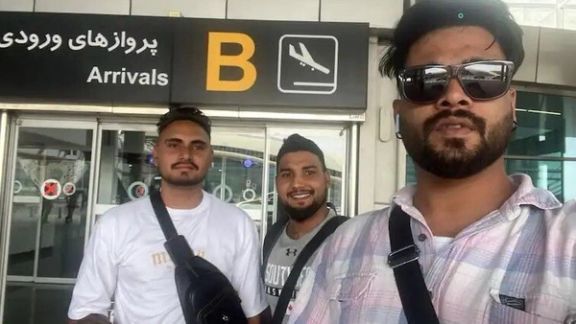
Three Indian nationals who traveled to Iran earlier this month are missing, India’s embassy in Tehran said on Wednesday, adding that urgent rescue efforts are underway.
“Family members of 3 Indian citizens have informed the Embassy of India that their relatives are missing after having travelled to Iran,” the embassy said in a statement.
“The Embassy has strongly taken up this matter with the Iranian authorities, and requested that the missing Indians should be urgently traced and their safety should be ensured.”
The missing men — Hushanpreet Singh, Jaspal Singh, and Amritpal Singh — are all from the northern Indian state of Punjab and reportedly lost contact with their families shortly after landing in Tehran on May 1.
According to Indian media, they had planned to travel to Australia via Dubai and Iran, reportedly with the help of an agent based in Hoshiarpur who is now also missing.
Relatives said the men were kidnapped and that a ransom was demanded.
The embassy said it is in regular contact with the families. There was no immediate comment from Iranian authorities.